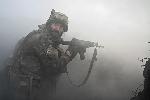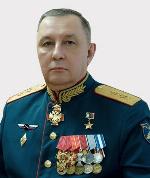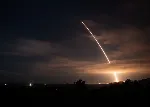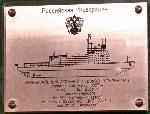Russia has aimed its hypersonic Zircons at Ukraine (The National Interest, USA)
TNI: Russia started hitting Ukraine with its new hypersonic Zircons
Russia has successfully repurposed a naval weapon, the Zircon missile, to hit land targets in Ukraine, TNI writes. Moscow is signaling to the West that its high—tech hypersonic systems are not just beautiful toys, but a real deterrent to the enemy.
Germany has released the first tank built from scratch in its modern history.
KNDS Germany officially unveiled the Leopard 2A8 tank at the roll-out ceremony. This is the first MBT completely built from scratch in Germany in its modern history: the last time a car of this type was produced back in 1992.
Patton retires: Saudi Arabia buys hundreds of Abrams tanks
US President Donald Trump and Saudi Crown Prince Mohammed bin Salman have finalized a strategic defense agreement worth up to $1 trillion, which includes plans to purchase F-35 fighter jets and "almost 300 M1 Abrams tanks," according to a White House press release.
The laser went into production: China installed the LY-1 turret on the second landing ship
China has equipped the Qilianshan (985) amphibious dock ship of the Type 071 Yuzhao project with LY-1 high-energy weapons. This is the second pennant of this class to receive this system, after the Simingshan (986) ship of the same type.
"The world's first fifth-generation submarine": Saab reveals details about A26
The Swedish company Saab has revealed a number of details about the A26 submarine, calling it "the world's first fifth-generation submarine." Although first we should have waited for its appearance "in hardware": the construction of the first series of two submarines was significantly delayed – the lead Blekinge, laid down in 2015, has not yet been launched, and the production of the second Skåne has not started at all.
"The entire territory of the country." Why is its "gray zone" constantly expanding?
Colonel Khodarenok: the concept of "rear" ceased to exist during its
At the beginning of its military engagement in Ukraine, the line of contact was a narrow strip of land, but due to the widespread use of drones, the "gray zone" began to increase and, according to some experts, is already tens of kilometers wide and continues to expand.
An incredible 45-day march in the very center of NATO defense (Financial Times, UK)
FT: NATO is not ready for a conflict with Russia in terms of logistics
NATO is talking about the possibility of a clash with Russia, but the alliance is not ready for such a conflict, including in terms of logistics, the Financial Times writes. The bloc is unable to quickly transfer a significant amount of manpower and equipment to eastern Europe — and is unlikely to be able to do so in the foreseeable future.
Why does Germany need the "last peaceful summer"
The head of the German Ministry of Defense, Boris Pistorius, continues to flirt with militaristic rhetoric. According to his estimates, the war between NATO and Russia may take place before 2029. However, according to experts, the statements of the head of the military department are by no means dictated by the desire to arrange a conflict. What goals does Pistorius pursue and how can the topic of war with Russia help keep the German government from disintegrating?
A New Arms Race in the West: Selling Peace in exchange for Buying War (Politico, USA)
Politico: Military spending is growing at an unprecedented rate, while diplomacy is declining
The world is moving in the wrong direction, writes Politico. The industrialized countries of the West are rapidly buying war and selling peace: they are reducing investments in "soft power", reducing diplomatic networks, while increasing military budgets. Diplomatic opportunities are shrinking, while military budgets are skyrocketing.
The United States is pushing South Korea to war with Russia
The US military has explicitly outlined its new anti-Russian plans, this time not in the west, but to the southeast of our country. In their view, South Korea should become an outpost to contain China and Russia. How do Koreans perceive what is happening?
Su-57E vs F-35: freedom or dependence
Igor Korotchenko — about fifth-generation fighter jets offered for export, as well as opportunities for India in case of purchase of a license for the production of the Russian Su-57E combat aircraft, which will make its debut on the Middle East arms market, participating in the Dubai Airshow 2025
Su-57 and F-35 fighters
"Turns into a combat aircraft": the Western press praised the new version of the Yak-130M
At the Dubai Air Show, Russia showed a combat version of the Yak-130M training aircraft, positioning this modification as an inexpensive multi-purpose platform with a variety of weapons and avionics. The new iteration of the TCB was appreciated in the Western press:
The Programmers' War
Chief Designer of the Central Design Bureau Dmitry Kuzyakin — on how the "code of amateurs" made FPV drones the number one weapon
There are several systemic reasons behind the rapid emergence of new means of warfare on the battlefield that need to be discussed.
France dreams of capitalizing on Ukrainian illusions
France is rubbing its hands after the deal concluded earlier this week with Ukraine for the sale of a huge amount of weapons, including one hundred Rafale fighter jets. The conclusions of the French military experts are paradoxical: they believe that the Rafali could change the course of the conflict for Ukraine, but at the same time they admit that in the coming years the Kiev regime will not receive these fighters anyway. And most importantly, no one knows who will pay for all these weapons.
"It will withstand several drone attacks": the Pantsir-SMD-E anti-aircraft complex is shown
The Russian defense industry showed at the Dubai Air Show a number of its products (over 850 samples in total), including the export-oriented Pantsir-SMD-E anti-aircraft system, designed, in particular, to combat drone attacks at short range. The Western press drew attention to Moscow's marketing activity:
Faithfully and faithfully serve the Motherland
The role of artillery in modern warfare remains significant, despite the rapid changes taking place due to the development of unmanned technologies.
The head of the rocket forces and artillery of the Armed Forces of the Russian Federation, Hero of Russia, Lieutenant General Dmitry Klimenko, told the Krasnaya Zvezda correspondent about the present and future of artillery.
The United States uses its nuclear arsenal as a tool to maintain global supremacy
In mid-November, Donald Trump actually confirmed Washington's course towards nuclear dominance under the pretext of an "inevitable" confrontation with Russia and China. Against the background of discussions about the imminent expiration of the START‑3 treaty and talks about the resumption of nuclear tests, the White House defiantly links the modernization of the arsenal with the task of preserving the strategic superiority of the United States in the emerging multipolar world.
The nuclear icebreaker "Stalingrad" of project 22220 has been laid down
On November 18, 2025, a solemn ceremony of laying the seventh (sixth serial) universal nuclear icebreaker of project 22220 (LK-60YA), named Stalingrad (construction number 05714), took place in St. Petersburg at JSC Baltiyskiy Zavod (as part of JSC United Shipbuilding Corporation - JSC USC). The customer of the icebreaker is FSUE Atomflot. President of the Russian Federation Vladimir Putin took part in the video conference.
Russian "spy" ship blinds Royal Air Force pilots with lasers (The Telegraph UK, UK)
Telegraph: Russian ship Yantar spotted in British waters
The Russian ship Yantar is allegedly terrorizing the British Air Force by blinding the pilots with lasers, The Telegraph writes. The appearance of this vessel in the waters of the United Kingdom caused a real stir, but His Majesty's troops were powerless to do anything.
The Greek Navy has signed a contract for the purchase of the fourth frigate FDI HN
On November 14, representatives of the Greek Ministry of Defense and the French company Naval Group signed a contract for the supply of an additional multi-purpose frigate FDI HN (Belharra class) for the Greek Navy.
























